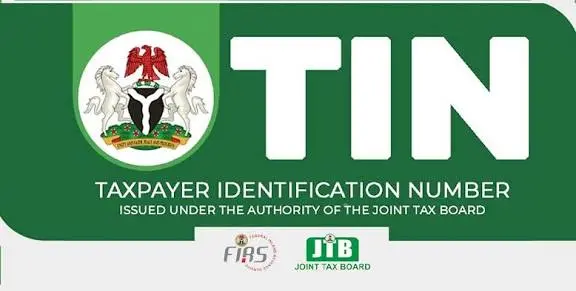In a move to overhaul Nigeria’s fractured tax system, the Federal Government has issued an ultimatum to its citizens and businesses: obtain a Taxpayer Identification Number (TIN), now rebranded as a unified Tax ID, or face exclusion from the financial mainstream. Effective January 1, 2026, no individual or entity will be able to open or operate a bank account, secure insurance, trade on the stock market, or even bid for government contracts without this digital badge of fiscal citizenship.
The policy, enshrined in the freshly inked Nigeria Tax Administration Act (NTAA) of 2025 and signed into law by President Bola Tinubu on June 26, 2025, marks a pivotal escalation in the administration’s fiscal reform agenda. It aims to drag Nigeria’s notoriously narrow tax base, currently hovering at a mere 10 million registered payers out of over 200 million people, into the tax net, potentially unlocking billions.
The seeds of the mandate were sown in the Finance Act of 2019, which tweaked the Personal Income Tax Act to require TINs for business account openings from January 2020. But the NTAA supercharges it, making the Tax ID a non-negotiable gatekeeper for a broad swath of economic activity. As Zacch Adedeji, Chairman of the Presidential Fiscal Policy and Tax Reform Committee, put it during a September 4 briefing in Abuja: “The TIN requirement is a cornerstone of our tax reform efforts to enhance compliance, streamline revenue collection, and foster a transparent fiscal environment.”
Under Section 5 of the Act, every taxable person, from everyday salary earners to multinational corporations, must register with the relevant tax authority, be it the Federal Inland Revenue Service (FIRS), Joint Tax Board (JTB), or state Inland Revenue Services. Government agencies at all levels aren’t spared; they’re mandated to lead by example. Non-residents peddling taxable goods or services in Nigeria? They’re on the hook too.
Read Also:
- Ibadanland is key to Nigeria’s human capital development, says Obi
- Canada rejects over 1,596 Nigerian Asylum claims in 2025 amid rising migration wave
- Cardoso’s CBN strengthening Nigeria’s payments system through Vision 2028
The “Tax ID” itself is a streamlined unifier for the patchwork of existing TINs issued by various bodies, ensuring one number fits all. For individuals, linking your National Identification Number (NIN) to the system will suffice for registration. Companies need their Corporate Affairs Commission (CAC) documents. Existing holders needn’t panic, their numbers remain valid, no re-registration required.
Nigeria’s tax-to-GDP ratio languishes at around 6%, a far cry from the 15-20% benchmark for emerging economies. With oil revenues dwindling amid global green shifts, the government is racing to diversify. Over 60 million Nigerians hold bank accounts, yet only a fraction contribute taxes, a “dangerous gap,” as one official described it, that starves public coffers and perpetuates dependency on volatile crude exports.
By tethering financial access to tax registration, the NTAA promises to swell the taxpayer pool exponentially. Proponents argue it will fund “critical services such as healthcare, education, and infrastructure,” closing the yawning deficit in a nation where pothole-riddled highways and erratic power supply are daily indignities. The six-month runway to January 2026 is billed as a grace period for sensitization campaigns and tech upgrades, with early birds urged to beat the rush.
The announcement has ignited a firestorm online and in boardrooms alike. Tax experts hail it as a “game-changer” for transparency, potentially curbing evasion by high-net-worth fugitives who squirrel away fortunes in offshore havens. Business lobbies, however, warn of a compliance crunch: small traders in Lagos markets or rural farmers might find the bureaucracy a barrier to survival.
Public reaction skews toward the skeptical. On social media, hashtags like #TaxTyranny2026 are trending, with users decrying it as another squeeze on the already beleaguered middle class. “Tinubu’s fast to scrap fuel subsidies, now he’s after our savings in the name of ‘reform’—where’s the development?” vented one Abuja civil servant in a viral post. Labor unions, still smarting from subsidy removal’s inflationary bite, have vowed protests if the rollout lacks safeguards for low-income earners.
Critics also flag privacy pitfalls: centralizing Tax IDs could expose data to breaches in a country where cyber-fraud is rampant. And for the unbanked, estimated at 40 million, this could paradoxically widen inequality, forcing a rush to formalize just to stay afloat.
Yet, glimmers of optimism persist. Financial inclusion advocates point out that the policy dovetails with the Central Bank’s push for digital wallets and mobile banking, potentially onboarding millions into the formal economy. “This isn’t just about revenue; it’s about building a system where everyone has skin in the game,” says Dr. Aisha Bello, a Lagos-based economist.
As the clock ticks toward 2026, the onus falls on tax authorities to demystify the process. Free registration drives are slated for community centers and online portals, with penalties for non-compliance, including fines and account freezes, looming as the stick to the sensitization carrot.






